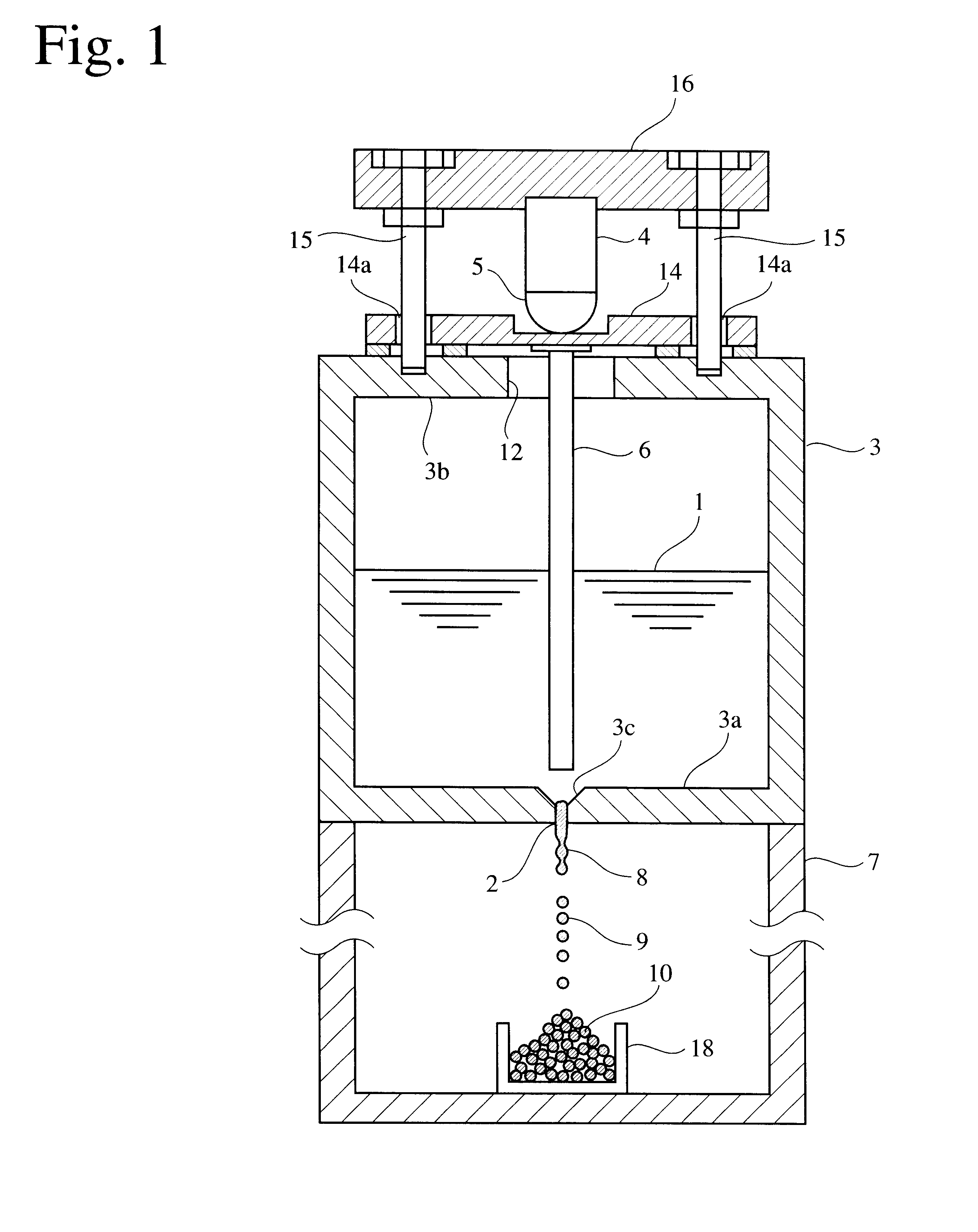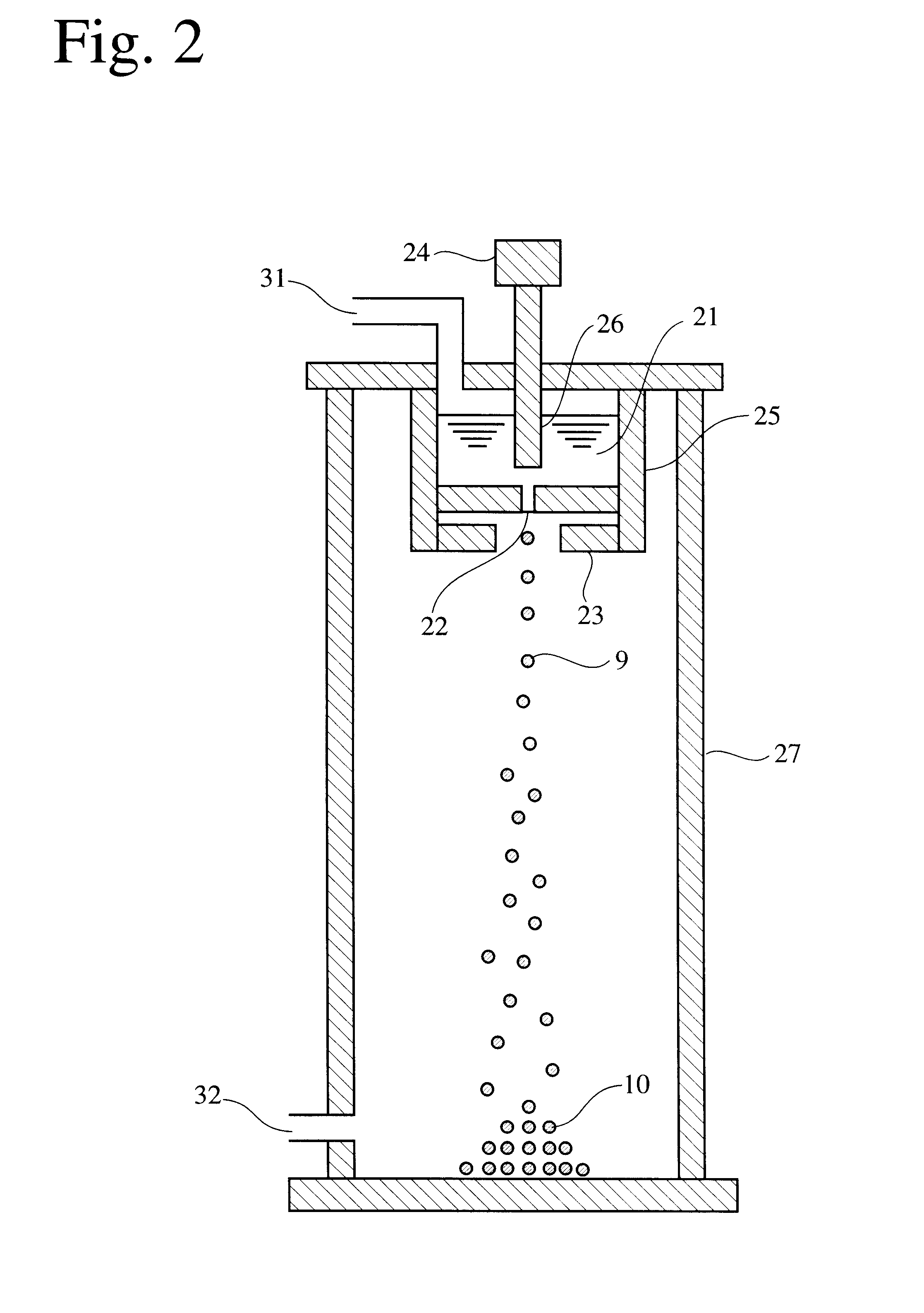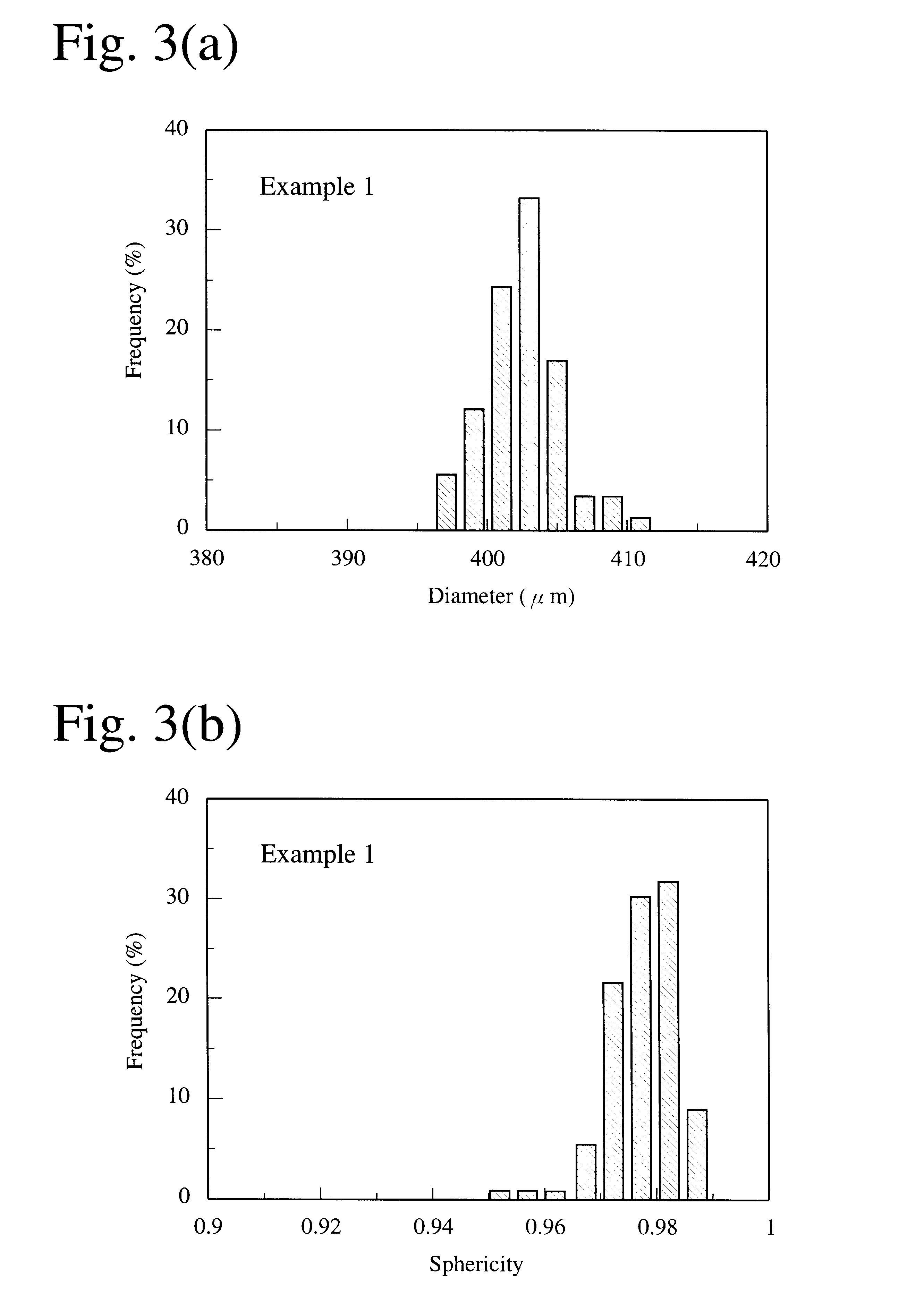Solder ball and method for producing same
a technology of solder ball and ball head, which is applied in the field of solder ball, can solve the problems of poor supply of solder ball, insufficient soldering, and low production efficiency
- Summary
- Abstract
- Description
- Claims
- Application Information
AI Technical Summary
Benefits of technology
Problems solved by technology
Method used
Image
Examples
example 3
The solder balls of 600 .mu.m in diameter having various alloy compositions were produced in the same manner as in EXAMPLE 1 using the apparatus shown in FIG. 1. The chamber 7 was filled with a nitrogen gas atmosphere of 0.15 MPa (gage pressure). 92% of all the resultant solder balls had dimension accuracy within a range of 590-610 .mu.m. As a result of measuring the sphericity (diameter of corresponding circle / maximum diameter) of 20 solder balls having dimension accuracy within a range of 590 -610 .mu.m, the sphericity was 0.98 or more.
5000 solder balls having diameters of 590-610 .mu.m were arbitrarily selected to carry out a rolling test by which the number of solder balls stopping on a slanting plate were counted to evaluate their surface conditions as rollability. The standards of evaluation of rollability were as follows.
.largecircle.: Less than 0.1% of solder balls among all the rolling solder balls stopped on the slope ( good rollability).
.DELTA.: Less than 0.1% of solder b...
example 4
Solder balls of 600 .mu.m in diameter having various alloy compositions were produced under the same conditions as in EXAMPLE 3 using the apparatus shown in FIG. 2, and 300 solder balls thus produced were observed with respect to surface conditions by a scanning-type electro microscope. The surface smoothness of solder balls was evaluated from the scanning-type electron photomicrographs by the following standards.
.largecircle.: Less than 6% of all the solder balls have ragged surface as shown in FIG. 11, and the remaining solder balls have smooth surface as shown in FIG. 10 (solder balls have excellent surface smoothness).
X: 6% or more of all the solder balls have ragged surface as shown in FIG. 11, and the remaining solder balls have smooth surface as shown in FIG. 10 (solder balls have poor surface smoothness).
5000 solder balls produced under the same conditions as above were evaluated with respect to rollability under the same conditions as in EXAMPLE 3. It should be noted that t...
PUM
| Property | Measurement | Unit |
|---|---|---|
| mass % | aaaaa | aaaaa |
| mass % | aaaaa | aaaaa |
| diameter | aaaaa | aaaaa |
Abstract
Description
Claims
Application Information
 Login to View More
Login to View More - R&D
- Intellectual Property
- Life Sciences
- Materials
- Tech Scout
- Unparalleled Data Quality
- Higher Quality Content
- 60% Fewer Hallucinations
Browse by: Latest US Patents, China's latest patents, Technical Efficacy Thesaurus, Application Domain, Technology Topic, Popular Technical Reports.
© 2025 PatSnap. All rights reserved.Legal|Privacy policy|Modern Slavery Act Transparency Statement|Sitemap|About US| Contact US: help@patsnap.com



